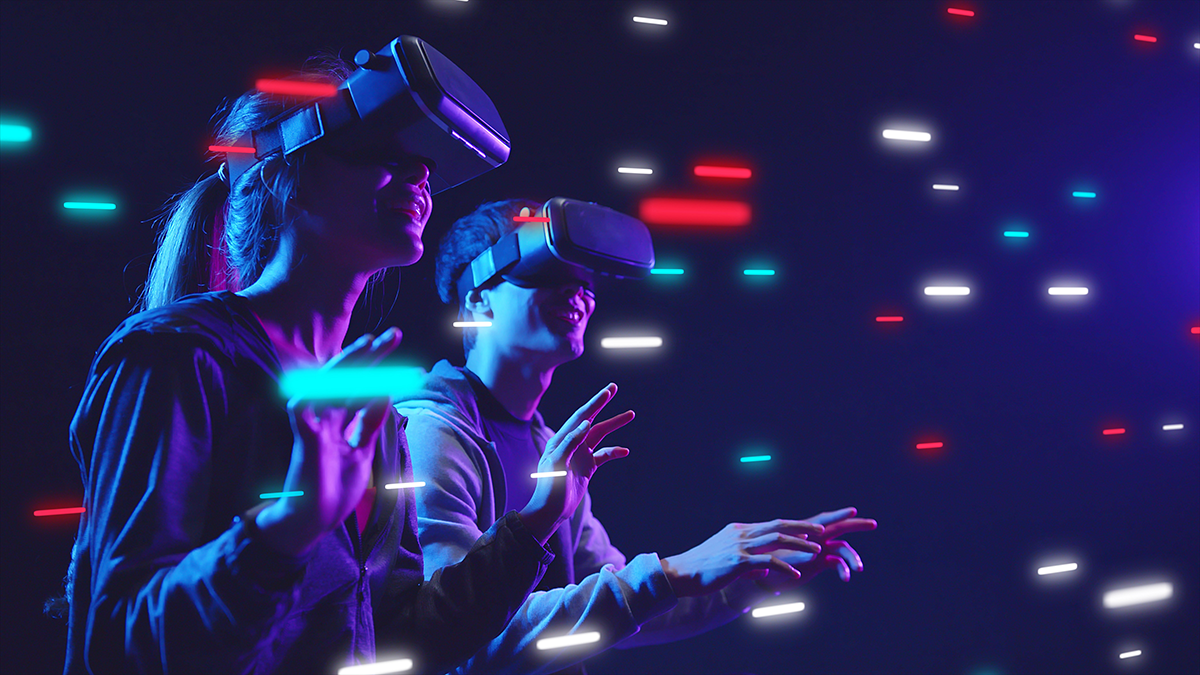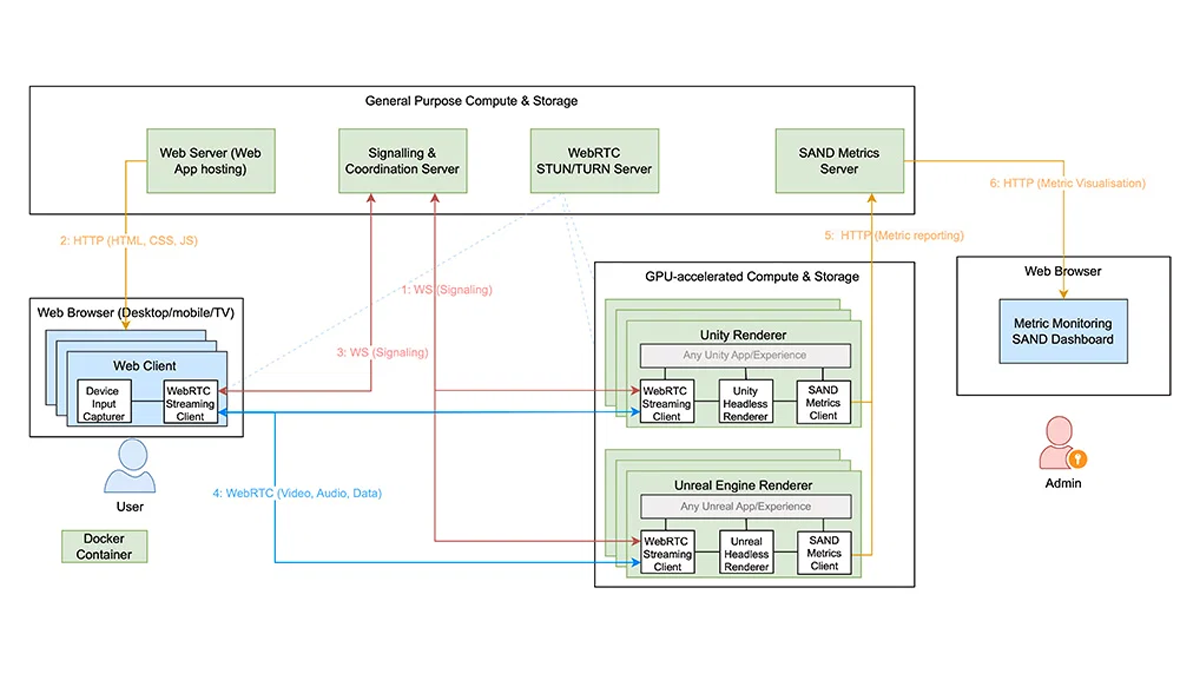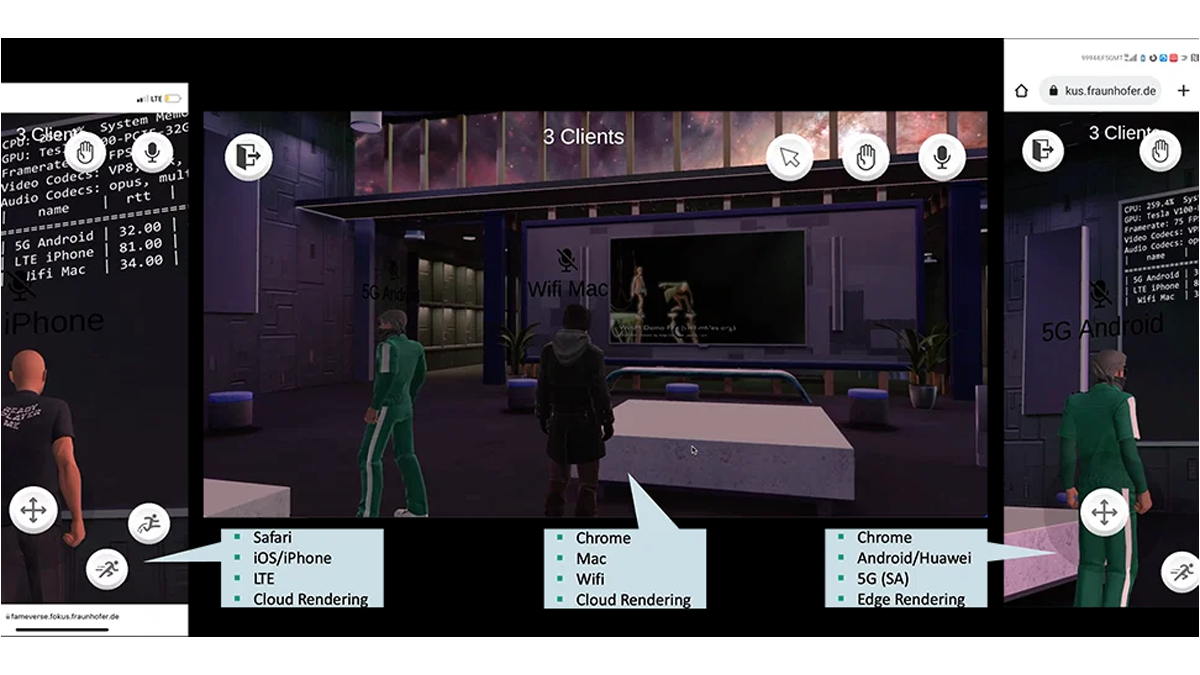One of the critical components of the FAMIUM Metaverse Framework is the 1ClickMetaverse Testbed, which enables testing and evaluation of Metaverse applications developed using popular 3D graphics engines like Unity, Unreal Engine, and NVIDIA Omniverse. This testing is done under varying network conditions (Ethernet, WiFi, LTE, 5G), communication protocols (WebRTC, WebTransport), video encoding (VP8, VP9, H264, H265, AV1), deployment scenarios (on-premise, edge cloud, central cloud), and number of connected users, among others. The experiences are packaged as Docker containers and rendered in headless mode on servers with varying computation resources and hardware-accelerated graphical processing. This abstraction from the underlying compute and storage platforms allows for the support of additional 3D graphics engines in the future.
Furthermore, our testbed includes a comprehensive metric reporting and analytics tool powered by FAMIUM SAND that collects performance metrics throughout the entire rendering and streaming pipeline. These metrics are presented to the user through a user-friendly web-based visualization frontend. Our platform ensures reliable performance and seamless user experiences, providing an ideal solution for consumer, enterprise, and industrial Metaverse applications.


